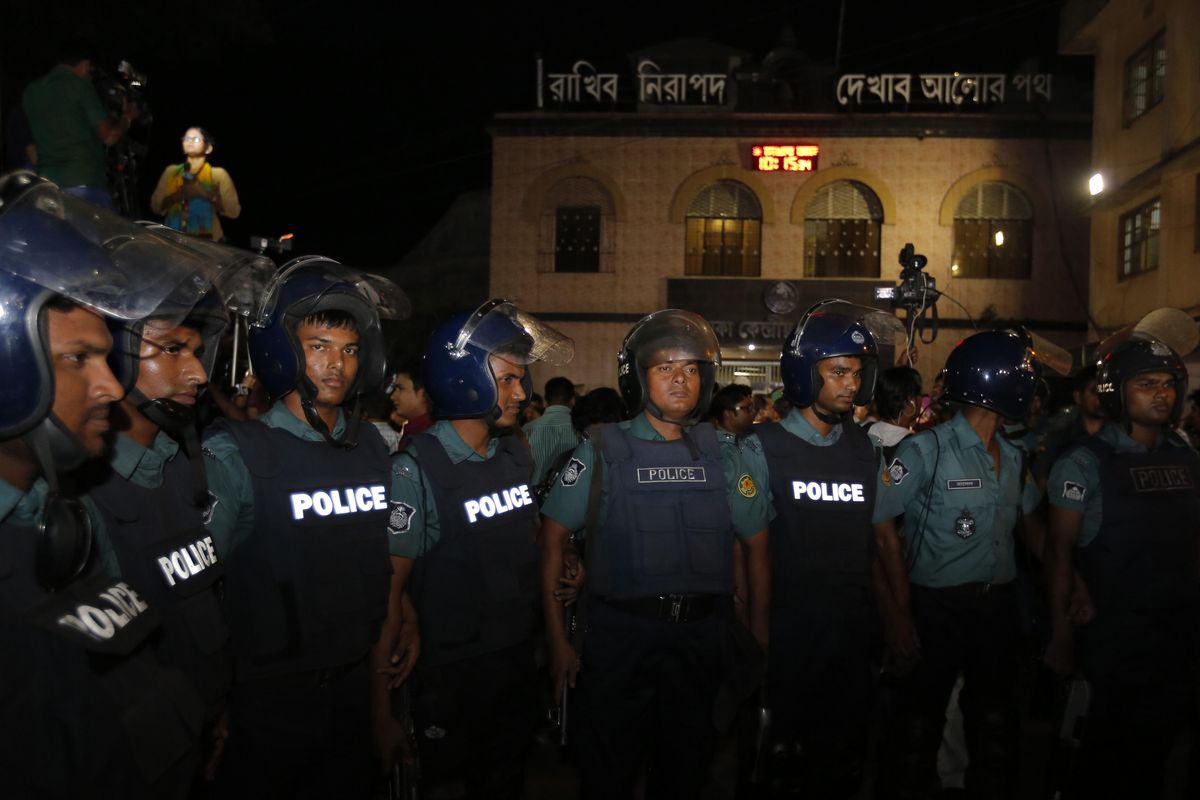Bangladesh executes leader of Islamist party, official says

DHAKA, Bangladesh – The head of Bangladesh’s largest Islamist party was executed early Wednesday for his role in acts of genocide and war crimes during the country’s independence war against Pakistan in 1971, a senior government official said.
Home Minister Asaduzzaman Khan said Motiur Rahman Nizami, the 73-year-old leader of the Jamaat-e-Islami party, was hanged at 12:10 a.m. Wednesday inside Dhaka central jail amid tight security. A crowd of activists celebrated outside the jail.
Senior Jail Superintendent Jahangir Hossain said Nizami’s body would be handed over to his family for burial.
The execution came a few hours after Nizami’s family had visited him for the last time. His family said Nizami would be buried in a family graveyard in the northwestern district of Pabna, his ancestral home.
Nizami refused to seek presidential clemency to commute his death sentence. A condemned man can seek such clemency from the country’s figurehead president.
Nizami did seek a review of his death sentence through the judicial system, but the country’s Supreme Court upheld his punishment.
Nizami was convicted of three major charges stemming from the 1971 war, including the killings of 480 people. He was also held responsible for the killings of dozens of intellectuals, including teachers, journalists and doctors, just two days before Bangladesh gained its independence in 1971.
Bangladeshi authorities say Pakistani soldiers, aided by local collaborators, killed 3 million people, raped 200,000 women, and forced some 10 million people to flee the country during the nine-month war in what was then known as East Pakistan, renamed Bangladesh after independence.
Nizami is the fifth senior official from opposition parties to be executed since 2013 for war crimes carried out during the 1971 war. Three other senior members of Nizami’s Jamaat-e-Islami party and a top leader of the main opposition Bangladesh Nationalist Party led by former Prime Minister Khaleda Zia have also hanged.
Trying suspected war criminals has posed a major challenge for Prime Minister Sheikh Hasina, who has faced strong international pressure to stop executing people such as Nizami who acted against the country’s struggle for independence.
Amnesty International and Human Rights Watch had protested the death sentence for Nizami. The human rights groups also raised questions about the standard of the trial process, but Hasina and her colleagues have rejected claims that the judicial procedures were flawed.
Authorities also rejected opposition claims that Nizami’s trial was politically motivated and designed to weaken the opposition, saying the families of the 1971 victims have the right to receive justice for their suffering.